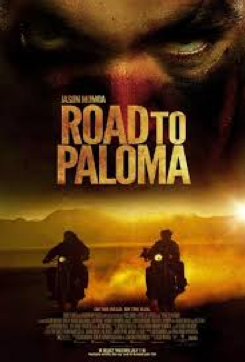Wesley Studi is a Native American actor and film producer. He has garnered critical acclaim and awards throughout his career, particularly for his portrayal of Native Americans in film. In 2019, he received an Academy Honorary Award, becoming the first Native American as well as the first Indigenous person from North America to be honored by the academy.
Studi was born into a Cherokee family in Nofire Hollow, Oklahoma, a rural area in Cherokee County named after his mother's family. He is the son of Maggie Studie, a housekeeper, and Andy Studie, a ranch hand. Until he attended elementary school, he spoke only Cherokee at home. He attended Chilocco Indian Agricultural School for high school and graduated in 1964; his vocational major was in dry cleaning. In 2024, Studi appeared on the television series Finding Your Roots and learned that Eugene Philpott, who was listed on his birth certificate, was not his biological father. Researchers later determined that his father was one of two brothers, Jess and Bobby Blair. Also during that episode, it was discovered his 6th great-grandmother was Nancy Ward, a Ghigau and Cherokee leader.
At the age of 17, Studi enlisted in the Oklahoma National Guard and had his basic combat training and advanced individual training at Fort Polk, Louisiana (now Fort Johnson). Studi volunteered for active service and went to Vietnam with the 3rd Battalion 39th Infantry, 9th Infantry Division, where he served for 12 months.
After his discharge, Studi became politically involved in Native American activism. He participated in the Wounded Knee Incident at Pine Ridge Reservation in 1973. Studi stated in an interview that he first began acting while attending Tulsa Community College, after returning from his service in Vietnam. He had a role in the play The Royal Hunt of the Sun for the American Indian Theater Company.Studi appeared in his first film, The Trial of Standing Bear, in 1988. He is known for his roles as ruthless Native American warriors, such as a Pawnee in Dances with Wolves (1990), and the Huron Magua in The Last of the Mohicans (1992).
A year later, he was cast with Eric Schweig for TNT's film The Broken Chain, about the historic Iroquois League that was based in the area of central and western present-day New York state. It was shot in Virginia. This was part of a group of productions shown over 14 months on TNT as its "Native American initiative", including three television movies and several documentaries. A six-hour history series was told from a Native American perspective. In 1993 Studi had the lead in Geronimo: An American Legend. He played the superhero Sphinx in the 1999 comedy film Mystery Men.
In 2002, Studi brought to life the character of Police Lieutenant Joe Leaphorn, for a series of PBS movies based on Tony Hillerman's novels set in the Southwest among the Navajo and Hopi. It was produced by Robert Redford. Some movie titles include "Skinwalkers", "Coyote Waits", "A Thief of Time".
In 2005, Studi portrayed a character based on chief Opechancanough, leader of the Powhatan Confederacy in Virginia, in the film The New World directed by Terrence Malick.
In 2009, Studi appeared as Major Ridge, a leader of the Cherokee before the Native American removal to Indian Territory, in Trail of Tears. This was the third of five episodes in the PBS series We Shall Remain, portraying critical episodes in Native American history after European encounter, part of the public television's acclaimed series American Experience, where Studi spoke only in native Cherokee.
Also in 2009, Studi appeared in James Cameron's Avatar as Na'vi chief Eytukan. Studi played Cheyenne chief Yellow Hawk in a starring role in the 2017 film Hostiles.
At the 90th Academy Awards, Studi introduced a tribute to military movies, and gave part of his speech in the Cherokee language, of which he is a fluent speaker. Studi is the second Native American actor to present at the Academy Awards. Will Rogers hosted in 1934.
In 2019, he received an Academy Honorary Award, becoming the first Native American actor to receive an Oscar specifically for acting. In his acceptance speech, Studi said: "I’d simply like to say, it’s about time. It’s been a wild and wonderful ride, and I’m really proud to be here tonight as the first Indigenous Native American to receive an Academy Award. It’s a humbling honour to receive an award for something I love to do."
In December 2020, The New York Times ranked him #19 in its list of the "25 Greatest Actors of the 21st Century (So Far)," noting "Wes Studi has one of the screen’s most arresting faces — jutting and creased and anchored with the kind of penetrating eyes that insist you match their gaze. Lesser directors like to use his face as a blunt symbol of the Native American experience, as a mask of nobility, of suffering, of pain that’s unknowable only because no one has asked the man wearing it. In the right movie, though, Studi doesn’t just play with a character’s facade; he peels its layers. A master of expressive opacity, he shows you the mask and what lies beneath, both the thinking and the feeling."
| Date of Birth | 17th December 1947 |
|---|---|
| Age | 76 Years |
| Zodiac Sign | Sagittarius |
| Country | United States of America |
| Current City | Tahlequah |
| Birth Place | Tahlequah |
| Nationality | United States of America |
| Citizenship | United States of America |
| Language | Cherokee |
| Reference | IMDB |
| Spouses | Maura Dhu Studi |
|---|---|
| Children | Kholan Studi Daniel Studi |
| Education |
|---|
| Tulsa Community College, Chilocco Indian Agricultural School |
| Occupation | actor, film actor, television actor |
|---|
| Awards |
|---|
|













